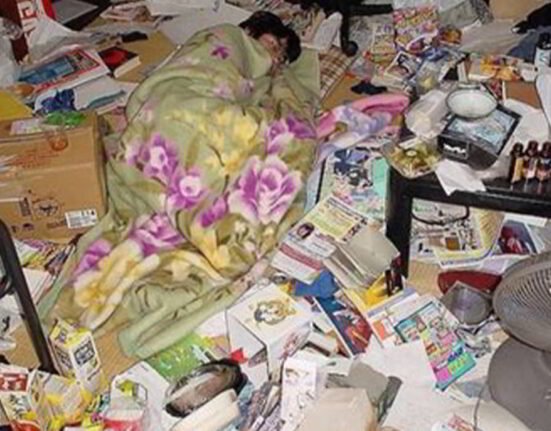Where we are right now is a waiting room of some kind…with the lockdown and isolation that we are going through in the wake of the COVID-19, we are experiencing the loss of an old life, however, we are not yet allowed to enter the new one.
As we stay in this waiting room we are riddled with anxieties – worries about our own health and health of our loved ones, concerns around our jobs and financial situations. We are afraid for our children, for our elderly parents and grandparents, our livelihood, our country and deeper within, fearful of our own mortality. We feel sad, bored, stressed, frustrated and lonely. The uncertainty of the situation can cause tremendous anxiety in most of us. This is because our brain is wired for survival and we are naturally programmed to constantly make judgments about what is safe and what is not. To our brains, uncertainty indicates danger and hence it makes up all kinds of stories to fill in the gaps of not knowing. It always assumes the worst, over personalizes threats and jumps to conclusions. Hence, we are hardwired to believe and overestimate the current threats of the infection and underestimate our ability to handle them. Naturally, the stress response of the body kicks in, with a “fight or flight reaction” and the anxious thoughts that enter our mind, now begin to find a place in our bodies, where it becomes a burden.
In this waiting room, we are also experiencing a sense of loss…..a loss of our freedoms, a loss of a predictable future and a loss of roles and lives left behind in our rush to protect ourselves from the virus. We are all going through a period of collective grief, which has affected us as humans, across countries, economies, and cultures. There is communal grief as we watch our systems of welfare, healthcare, economy, education, markets all destabilizing in such a short span of time. Losses are not just of the systems we depend on, but we have begun questioning our abilities to predict, control and our ability to protect our children and our elderly. Many of the losses that we are experiencing right now are so-called ‘ ambiguous losses’ unlike a concrete event like death. The loss of sense of safety, of personal freedom, of sense of social connectedness, of projects, of routines…Going forward, people are going to experience new losses which we can’t yet predict …it’s a kind of a living loss that we are in the midst of ..one that goes on and on. We not only grieve for what is missing, but also for the way the situation is affecting our sense of identity.
What then is the way for us to cope in this waiting room? How do we deal with the sense of loss and grieving?
A psychological perspective will help us normalize and understand what we are going through. Psychological research tells us that :
Anxiety is normal in crisis: We acknowledge that things are going to be difficult and that feeling anxious is a normal reaction to the current crisis. Ask yourselves, is it the virus that is scaring you or the uncertainty, uncontrollability and the drastic changes that we have been thrust into. We stay informed, follow what the experts tell us, take one day and one step at a time and try to make the best opportunity of this difficulty.
In such a volatile scenario, the most powerful and the only thing that we can control is our perspective of looking at the world. So, in addition to cleansing our homes and our hands, we also need to cleanse our minds from exaggerated catastrophic thinking patterns of worse outcomes.
Get real with how we are feeling: Millions of us have lost the ability to organize and plan .We are finding it difficult to follow a disciplined routine like we use to do before. We are becoming more focused on maintaining the facade of being fine. Neglecting to acknowledge our reality does not protect us from pain. Share your invisible feelings with others.
Grief is natural and most people are resilient: Grief is really about turning inward and readjusting to our inner feeling state and thinking “ This is not the way is the world is anymore and I need to adapt” George Bonanno, Ph.D., a psychologist who heads the Loss, Trauma and Emotion Lab at Teachers College, Columbia University says. “It’s okay to feel grief over what we’re losing. When we do that, it allows us to let grief do its job, so that we can move on.” His research suggests that once a crisis has passed, most people are able to bounce back and move on with their lives.
“Accept, acknowledge and name” our grief: Coping with grief can start with mental health practitioners, helping their clients to put words to their feelings. People usually have a vague sense of sadness or anxiety. We can ask people to think about what they are losing in this pandemic. It helps in organizing the thoughts of the person around the loss, whether it is the sense of loss over jobs, relationships, roles, sense of identity or self-efficacy. It gives a greater sense of clarity and can give a direction in taking action; Experts strongly recommend journaling as it puts words to losses and identifies ways to move forward. As the work of psychologist James Pennebaker, Ph.D., at the University of Texas at Austin, has shown, writing about emotional upheavals can improve both physical and mental health (Perspectives on Psychological Science, Vol. 13, No. 2, 2018).
Maintain Social connections: Social support has been proven to help people to move from grief rather than getting stuck in it. However, in the current phase of physical distancing, our social support systems seem weakened. Psychologists recommend that people stay connected to their social support through texts, calls, video messaging and social media. Erika Felix, Ph.D., a psychologist at the University of California, Santa Barbara, who treats and studies survivors of trauma and disasters states “One thing we’ve learned from disasters is the ongoing importance of social supports. The lesson is to keep checking in on people, and keep the support going even after this period of lockdown ends,” she says. “For some people, the stress will continue after quarantine ends, especially if their jobs or relationships are affected.”
We must also be mindful that someday the period of isolation will end and we will be expected to go back to our routines. The longer we stay in the period of isolation and grief, the harder it is to go back to a lively world. The brain’s primary purpose right now is to keep us inside and safe. When it’s time to be out of this waiting room, it won’t let us go that easy. We must not let that happen. When coping with the loss of our life due to the virus we must try not to neglect our capacity for happiness. Whether it’s connecting with friends, or a new hobby or a new online class that you always wanted to but never had the time for. Whatever you do make sure you find time to feel fully alive.
During this time of our lives, let’s all meet ourselves with compassion, kindness, and vulnerability to the anxiety, grief, and unpredictability of what we are experiencing.
Let’s stay in hope, stay in gratitude, stay in unity!!!!












Leave feedback about this